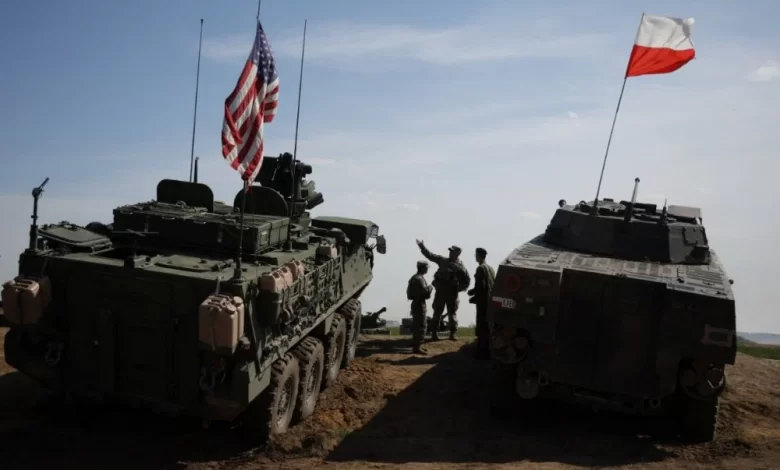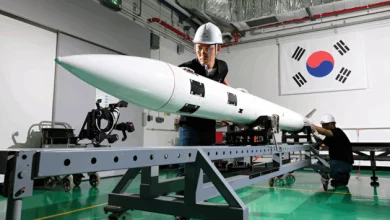Analysis: Expanding NATO will further consolidate Europe’s dependence on the US

Neither war hysteria, a desire to punish Russia, nor sympathy for democratic values and human rights should affect narrow strategic calculations in such a permanent way.
In the aftermath of Russia’s invasion of Ukraine, the geopolitical considerations of several European nations are changing. Finland and Sweden are now accelerating a transition away from their historic neutrality by attempting to join the North Atlantic Treaty Organization (NATO). NATO is the historic alliance of thirty nations that served as a bulwark against the Soviet Union until the latter’s demise, and its founding treaty includes Article V, which commits each alliance member to the defense of any other member that is attacked. As a result, the decision on whether to expand NATO to Finland and Sweden must take into account a fundamental consideration: is it in America’s interest to bind itself into a commitment to go to war with a nuclear power over the structural integrity of these two nations? Should the American people be willing to send their servicemen and women for such a national security interest?
Despite its historic aspirations, Russia enormously overestimated its own power in Ukraine. Instead, the Russian experience in Ukraine, while a humanitarian catastrophe, has demonstrated long-term hardware, personnel, intelligence, and training deficiencies, as well as structural issues including endemic corruption, old school planning, an authoritarian decision-making echo chamber, and low troop morale. Russia also lacks the economic base and material power and is increasingly reeling under sanctions.
Put simply, Russia is not going to be the hegemonic specter looming over Europe anytime in the near future. What that logically entails is not that the Ukraine invasion is the first domino to fall across Europe, meriting a preoccupation with Russian encroachment, but rather, that Russia is a manageable threat that European states can increasingly balance on their own collectively. Europeans are perfectly capable without further investment of American treasure or promise of American blood, and a primacist grand strategy requiring American forward presence. The only reason Europe is taking a backseat is because it is reliant on the unending generosity of Americans. In addition, a much-weakened Russia can also be extremely volatile, prone to miscalculation and paranoia, which might be exacerbated by the “chain-ganging” of Western great powers by their activist junior allies—a very common and observable dynamic especially seen under the conditions of multipolarity wherein smaller protectorates and hectoring and sanctimonious allies attempt to drag much larger benefactors into a great power war. It is a trap the United States must judiciously avoid at all costs.
Otherwise, the result could well be greater misunderstanding and an even greater risk of accidental conflict along a much longer border with NATO. This paradoxical dynamic isn’t new in international relations, World War I being the most ruinous example. The only development that might reverse an emerging natural equilibrium is a Ukrainian counterattack on Crimea or somewhere deep inside Russian territory, or a major expansion of an alliance which justifies Russia’s historic and entrenched paranoia, such as a renewed push for further NATO enlargement.
A fast-track process for Finland and Sweden’s NATO membership is now underway, at the behest of those European states who are taking advantage of the situation and war hysteria to further enlarge an already bloated and diluted alliance. Consolidating an arrangement that has worked well for them in the past few decades is an understandable desire, but it does not correspond that it has worked well for the United States. Policymakers in the United States should ignore the popular currents and encourage open public debates about the limits of NATO’s constantly mutating frontiers and fluid commitments.
Finland and Sweden are in no real danger of any invasion, and neutrality worked well for them. Russia is a shadow of its former self, with a broken military and damaged economy due to an attritional war of choice, and collectively, Europe massively outspends Russia. In fact, Germany, France, and Britain combined are more than capable of providing deterrent forces in the Baltics, and have their own nuclear umbrella. Neither Finland nor Sweden adds enough to the security of the alliance to justify the additional costs. Adding them would mean two more states as protectorates for whom the United States would be treaty-bound to go to a nuclear war.
Neither war hysteria, a desire to punish Russia, nor sympathy for democratic values and human rights should affect narrow strategic calculations in such a permanent way. Instead, the Russian debacle in Ukraine demonstrates that it is increasingly time for the United States to reorient away from Europe and focus on more pressing issues such as the southern border, inflation, and the rise of China.
Americans are already familiar with George Washington’s warnings about avoiding “passionate attachments” and interweaving destinies with any parts of Europe. The emerging global order encourages everyone to pay heed to another George. In 1822, after the collapse of Napoleonic France and the resulting multipolarity in which Great Britain enjoyed overwhelming preponderance and faced no long-term hegemonic threat from Europe, the British conservative foreign minister, George Canning, coined the guiding principles of “non-intervention and every nation for itself … in a balance of power; respect for facts, not for abstract theories; respect for treaty rights, but caution in extending them.” Those principles underscored a certain conservative realism that served Britain well for over a century. While unfashionable in the post-modern world, now is the time for America to look back to the wisdom of an era functionally similar to ours.





